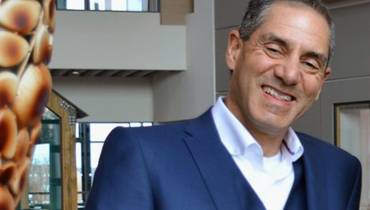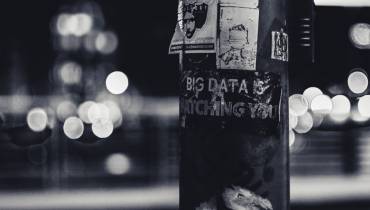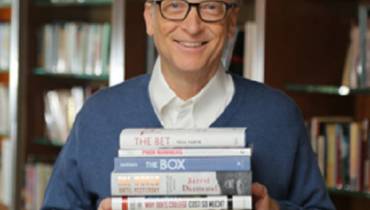Why Achieving Creative Success Is a Process - Not an Event

Creative genius is within your reach if you can cultivate the right habits.
The right habits such as discipline, consistently showing up to create, and patience are key factors for success. This is because thinking creatively, connecting the dots, and producing something truly great is a process for all of us, rather than a single event.
The people who are more inclined to expose themselves to new attempts, those who don't mind embarrassing themselves are the ones who improve on their creativity. Those people who wrestle with creative ideas for years get to refine those ideas and build their best body of work, which then bring big rewards.
Norwegian artist Edvard Munch painted almost 1,800 paintings in his 81 years. Yet most of us know him for just one: The Scream. This is a common pattern that occurs in the creative lives of people. It might be discouraging to create things knowing that most of what you create won't be recognized much by people, but the more things you create the more your chances of making something that resonates with the masses and that matters a lot to many people.
It's like the story of the ceramics teacher in the classic book "Art & Fear," an enlightening read on how art gets made. The ceramics teacher graded half of his class on quantity (how many pieces each student could make) and the other half on quality (create only one piece but make sure it’s perfect). An interesting fact emerged: The works of highest quality were all produced by the students being graded for quantity.
Debunking the Myth of the Eureka Moment

In an excellent post about creative thinking, writer James Clear exposes the myth that is the "eureka" moment, the so-called "light bulb" moment or "aha!" moment. He demonstrates that the single flash of genius isn't what it is made out to be by citing the most iconic eureka moment in the history of scientific storytelling: When Sir Isaac Newton saw an apple fall to the ground in 1666.
When you think of Isaac Newton, you probably imaging he was born a genius. But, he wasn’t. When Newton was young, he did so poorly in grade school that his teachers gave up on improving his grades. And yet he grew up to become the greatest English mathematician of his generation. How did he do it? He kept improving himself throughout his life despite any setbacks he faced.
Concerning Newton's most famous work on gravitation, Clear writes:
“In 1666, one of the most influential scientists in history was strolling through a garden when he was struck with a flash of creative brilliance that would change the world.
While standing under the shade of an apple tree, Sir Isaac Newton saw an apple fall to the ground. ‘Why should that apple always descend perpendicularly to the ground,’ Newton wondered. ‘Why should it not go sideways, or upwards, but constantly to the earth’s center? Assuredly, the reason is, that the earth draws it. There must be a drawing power in matter.’
And thus, the concept of gravity was born.”
What many people fail to realize however, Clear notes, is that Newton worked on his ideas about gravity for nearly twenty years. It wasn’t until 1687 that he consolidated his brilliant thoughts and published his groundbreaking book, "The Principia: Mathematical Principles of Natural Philosophy."
“The falling apple was merely the beginning of a train of thought that continued for decades,” Clear writes. The real creative work, the connecting of the dots, the bridging of seemingly unrelated and obscure ideas happened between the years when he first got the flash of insight and when he published his iconic book.
Exercise Your Creativity for As Long As It Takes
The fear of being judged for your creative works and thoughts should not deter you. That judgment and criticism is a useful feedback metric. Creators need it because without being criticized there is no opportunity to learn how we can improve and make our ideas better. Without criticism there is no verification of work completed.
So, don’t fear being called out, ridiculed, embarrassed, or even humiliated for your creative practice. Even Albert Einstein was ridiculed and rejected for his ideas and creative work, before proving naysayers wrong. In the 1972 classic "Albert Einstein: Creator & Rebel," authors Banesh Hoffman (Einstein’s former scientific assistant) and Hellen Dukas (Einstein's secretary for many years) reveal in the most intimate and touching way how the scientific community criticized, ridiculed, and rejected a patent clerk who published a revolutionary theory.
Though criticized and rejected, Einstein, the lowly patent clerk and theoretical physicist, wasn’t discouraged. He pressed on with his work and as time went on more and more scientists saw the validity and brilliance of his creative thoughts and work. Today Einstein is recognized as the creator of relativity, godfather of quantum physics, and bender of time and space. He was awarded the 1921 Nobel Prize for Physics for his explanation of the photoelectric effect in 1905 and “for his services to Theoretical Physics.”
There Will Always Be People Who Dislike Your Work
Every creative person will have his or her share of critics. It’s almost inevitable. And if you care about your work and ideas, you will experience creative uncertainty, doubt and fear many times. Only those who stand firm and don’t let fear of disapproval or embarrassment smother their efforts will overcome and achieve success in their creative pursuits.
"Being in the top 1% of intelligence has no correlation with being fantastically creative," writes Clear. "Instead, you simply have to be smart (not a genius) and then work hard, practice deliberately and put in your reps."
The most creative people share a willingness to labor in their craft, ship their best work, and respond to critics and fans in a way that enhances their next creative cycle. The risk of being judged; of making a fool of yourself pales in comparison to the terror of inaction and regret of missed opportunities due to fear.
Think about what it would be like to be embarrassed for exercising your creativity. Would it really be as bad, depressing or humiliating as you think it would be? In most cases, you're worried about things that aren't as harmful or enduring.
Practice your creative trade till you succeed.













![9 Tips for Managing Your Online Writing Projects Efficiently [node:titile]](/sites/default/files/styles/video_thumbnail_bottom/public/open-book-laptop-online-writing-tips.jpeg?itok=rI4zR3a-)






